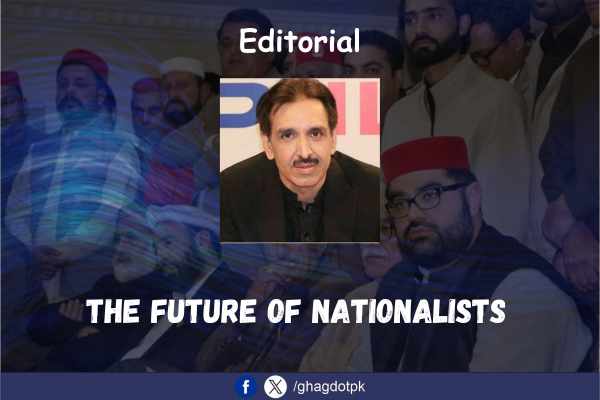The nationalists have always played a significant role in Pakistani politics, but in recent years, their influence has been steadily declining as mainstream parties have begun to take their place. While movements such as PTI and PTM are gradually replacing the ANP in Khyber Pakhtunkhwa, certain factions in Balochistan have begun adopting resistance tactics in place of parliamentary politics, and nationalists there are also experiencing a decline in support. Except for Khyber Pakhtunkhwa and Balochistan, nationalists have historically held significant sway over Sindh. However, following 1988, the PPP severely damaged and nearly eradicated them, and at the same time, the symbolic actions of Sindhi nationalists came to an end. The powerful state of Pakistan intervened a few years ago and eliminated the MQM when it chose the path of violence by laying the groundwork for modern nationalism in Sindh’s urban areas. Since then, Altaf Hussain, who “locked” Karachi and Hyderabad in a matter of minutes, has reduced himself to a “clown” imprisoned in London.
The Mengal, Bugti, and Achakzai families no longer hold sway in Balochistan, while Wali Bagh’s historical significance in Khyber Pakhtunkhwa is now restricted to commemorating a few “years” and “singing praises” of nationalist poets.
The home constituency of Wali Bagh has historically shifted since 2013 due to the multiple wins of obscure PTI candidates. The locals of Wali Bagh have adopted a life-saving strategy by referring to these successive defeats as the “conspiracy” of the establishment.
In recent months, the Bilour family of Peshawar city has made multiple attempts to exit the party, seemingly adhering to the “ifs and buts” policy of distancing itself from legislative politics.
Furthermore, Zahid Khan, the previous central spokesperson for the ANP, is reportedly leaving politics, and his “withdrawal” is attributed to the views and policies of Wali Bagh’s youthful central president. However, Haider Khan Hoti, the successor to the Hoti House, has also revealed an undeclared apathy in the political and party activity. Another “relative” of Wali Bagh, Shahi Syed, the ANP provincial president who “rules” Karachi, is disillusioned with the party’s future and is prioritizing his business over politics.
With the support of the PPP and a few “others,” the central president was appointed to the Senate on the quota of Balochistan due to the “serious” nature of the situation. Meanwhile, Akhtar Mengal, the son-in-law of the late Chief Minister Ataullah Mengal, resigned a few days ago from his single seat in the National Assembly.
Vandalism has also beset Mahmood Khan Achakzai’s Pakhtunkhwa MAP, the Pashtun nationalist leader of Balochistan. Despite this, the minister continues to breathe artificially, choosing to stay active and “to stay in the politics” from the PTI platform, recognizing the changing situation. With all of this, it is accurate to say that Pakistan’s nationalists have either given in to the bourgeoisie or the traditional parties have been supplanted by resistance groups attempting to advance by standing in for the younger generation.






